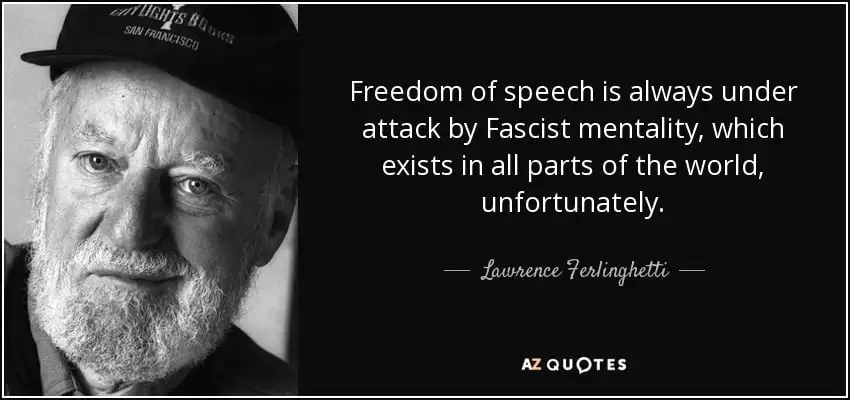Table of contents
Freedom of expression essay
Freedom of speech is under attack around the world. This is despite the fact freedom of expression has been recognised as a human right in the Universal Declaration of Human Rights.
Any individual or community should have the right to articulate their opinions and ideas without fear of retaliation, censorship, or legal sanction.
Freedom of Expression
Freedom of expression is a fundamental human right that encompasses the freedom to hold opinions without interference and to seek, receive, and impart information and ideas through any media and regardless of frontiers. It is recognized as a cornerstone of democratic societies and is protected by various international human rights instruments, such as the Universal Declaration of Human Rights and the International Covenant on Civil and Political Rights.
Freedom of Speech is a freedom worth fighting for. I firmly believe it is the duty of every citizen who takes on a leadership role to defend freedom of speech. That is what I am doing in response to the legal attack on me by the LGAQ and their retired CEO Greg Hallam.
Freedom of Speech Limitations
In most countries freedom of speech is not a legal right. The old catch phrase “we are lucky to live in a free country” is at best mis-informed. Two of the main freedom of speech limitations are a lack of constitutional recognition (of freedom of speech) and outdated defamation laws.
The United States and a number of other western countries have a constitutionally guaranteed freedom of speech. However, in most of the world, including Australia, this is not the case.
In Australia, in a number of rulings the High Court has said that our constitution frames us as a liberal democracy, which means certain democratic freedoms are inherent. However, the lack of a Bill of Rights or constitutionally entrenched freedom of speech means expressing your views in this country can have dire consequences.
Increasing use of defamation litigation is a worrying trend that is threatening freedom of speech. In my view, it is often an abuse of power, such as when politicians and CEO’s use defamation law to silence people. This legal tort has been used against critics, both from within their organisations and from outside.
When we allow the ‘right to sue’ to dominate over ‘the right to freedom of speech’, we put at risk a long held liberty for which many have sacrificed. This sees freedom of speech under attack.
5 Limitations of Freedom of Speech
Freedom of speech, though widely protected in democratic societies, has specific limitations to balance individual expression with public safety, order, and respect for others’ rights. Here are five common limitations on freedom of speech:
- Hate Speech
- Defamation
- Public Safety and National Security
- Obscenity and Indecency
- Intellectual Property and Confidential Information
Each of these limitations serves to protect societal interests, balancing individual rights to free expression with the safety, rights, and well-being of the broader community. However some of these limitations are now being used to to silence and punish groups as diverse as fascists, corruption crusaders and climate change protesters.
Freedom of Speech Examples
There are certain values which people have been prepared to fight and die for. These include a right to democracy, a right to freedom of religion and a right to liberty. One democratic value that follows on from all this, is the right to ‘freedom of speech’.
Voltaire
François-Marie Arouet (1694 – 1778), known by his nom de plume Voltaire, was a French Enlightenment philosopher. He is most famous today for his advocacy of freedom of speech. Born in Paris, Voltaire had trouble with the authorities for his critiques of the government. They sought to silence him.
Voltaire clearly stated his belief that, “The right to free speech is more important than the content of the speech.” As a result of criticism of the French government of the day, Voltaire was twice sentenced to prison and once to temporary exile to England.
George Orwell
George Orwell is one of the world’s most famous writers and social commentators. He was alarmed to see freedom of speech under attack. His writing exposed the unjust sufferings of the poor and unemployed. However, he is remembered by many for his warnings against totalitarianism and his defence of freedom of speech. Indeed, he famously wrote, ‘If liberty means anything at all it means the right to tell people what they do not want to hear.’
Universal Declaration of Human Rights
The right to freedom of expression is recognised as a human right under article 19 of the Universal Declaration of Human Rights (UDHR). Article 19 of the UDHR states that “everyone shall have the right to hold opinions without interference”.

Freedom of Speech Violation Examples
Examples of freedom of speech violations typically involve cases where government or authority figures restrict, penalise, or censor individuals’ or groups’ expressions of ideas, views, or criticisms. Here are a few key examples across various contexts:
- Political Suppression:
Media Censorship in Authoritarian Regimes: In countries with strict authoritarian governments, such as North Korea or China.
Protests and Assemblies: In certain regions, protest organisers or participants may face violence, arrest, or detention for participating in demonstrations. - Academic Restrictions:
Scholarly Freedom Limitations: In some countries, universities and academic institutions are pressured to restrict or ban studies, talks, or research on topics that criticise the government or established policies. - Legal Constraints in Democratic Nations:
Defamation Laws in Australia: Australia’s strict defamation laws sometimes limit what journalists and media outlets can publish about public figures, as the burden of proof is on the publisher to prove the truth of statements, not on the subject to prove falsity. While designed to protect individuals, these laws are sometimes seen as a restriction on freedom of speech.
Social Media and Hate Speech Laws: Countries like Germany and France have enacted laws requiring social media platforms to remove hate speech or fake news. While aimed at reducing harmful content, critics argue that these regulations can lead to excessive takedowns and stifle legitimate expression. - Religious Speech Limitations:
Blasphemy Laws: In some countries, laws exist that restrict speech against particular religions, such as Pakistan’s blasphemy law, which imposes harsh penalties, including death, for perceived blasphemous remarks. Critics argue that these laws inhibit freedom of religious and non-religious expression. - Digital Surveillance and Internet Restrictions:
Internet Shutdowns and Surveillance: Some governments monitor online activity and shut down internet services in response to political events or criticism. During the 2021 protests in Myanmar following the military coup, the government frequently shut down the internet to control information flow and prevent dissent, violating citizens’ rights to communicate and express themselves.
These examples highlight different ways in which freedom of speech can be curtailed globally, often reflecting a tension between state interests and individual rights.
Freedom of Speech Under Attack Today
Donald Trump irresponsibly used his freedom of speech many times, by telling lies and promoting hate speech. In response there was a community backlash calling on media outlets not to report his more offensive outbursts.
However, when we attempt to restrict the speech of our political opponents (e.g. Trump), it is important to remember that laws are universal. So when we limit the freedom of speech of our political opponents, we also limit our own. Silencing people is not a win, real victory is won on the strength of one’s ideas.
Freedom of Speech Australia
The wealthy and powerful often use defamation law, as the civil law is something only those who have money or influence have easy access to. Look no further than mining billionaire Clive Palmer for a powerful man prepared to litigate in order to silence his critics. Indeed he has listed one of his favourite pastimes as taking defamation litigation.
The rest of us have little or no access to legal mechanisms to restrict what others say about us. Indeed I know this all too well. I am currently being sued for defamation for expressing my concerns around local government corruption in Queensland. So clearly some of us have greater restrictions on our speech than others.
Importance of Freedom of Speech
The truth is often uncomfortable, as are ideas that differ from our own, sometimes these may be dangerous ideas. However, the answer is not to silence those with whom we disagree. Indeed the answer is to combat fear and misinformation with truth and logic.
So is Freedom of Speech Under Attack? Indeed it is – and it is our duty to defend it. I am doing my best to put the argument for freedom of speech; indeed, I have put everything I have on the line to defend it.
Cr. Rob Pyne (Disabled former MP, and Local Government Councillor on Cairns Regional Council in Far North Queensland).
* The LGAQ defamation case against Pyne and O’Conner was heard in the Cairns District Court. A decision will be handed down on 30th October 2024.


Comments
3 responses to “Freedom of Speech Under Attack”
[…] Freedom of Speech Under Attack […]
[…] use of defamation litigation is a worrying trend that is threatening freedom of speech. In my view it is often an abuse of power. When Business leaders, CEO’s, public servants or […]
[…] claim, there are real life consequences. Most obviously are the wider implications of this attack on freedom of speech. However, at the personal level, the consequences are real and painful for defendants like […]